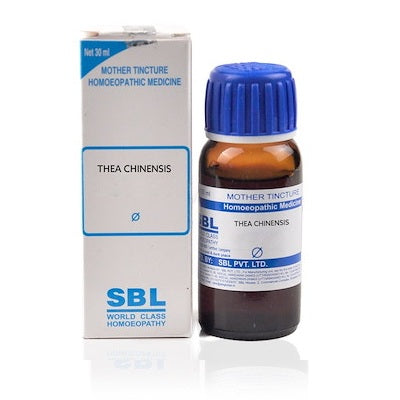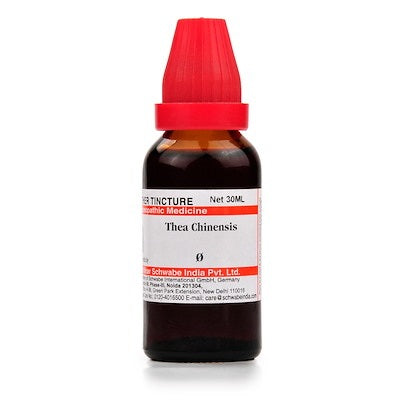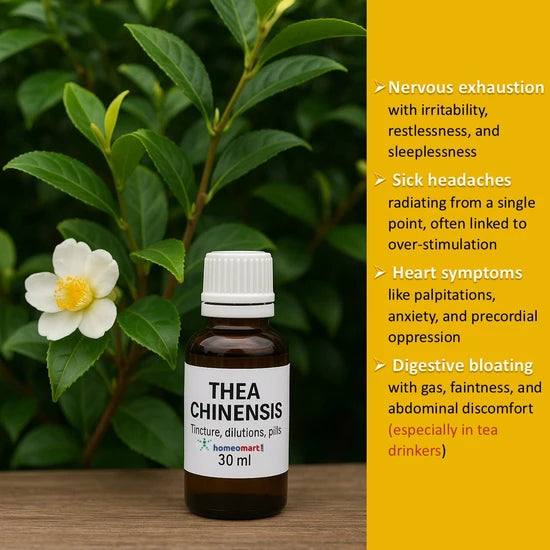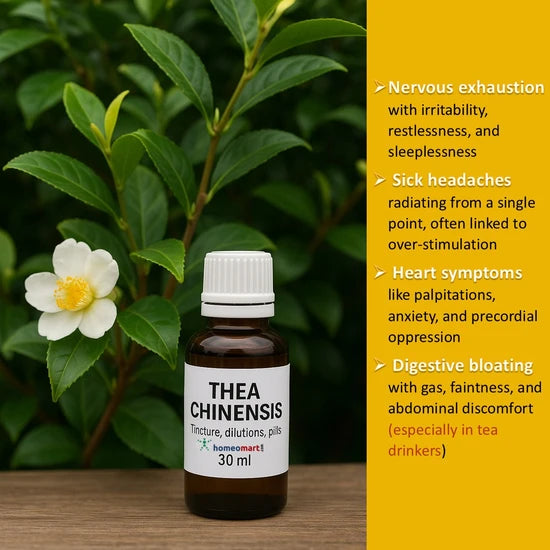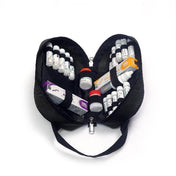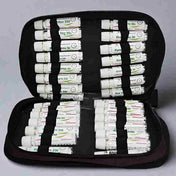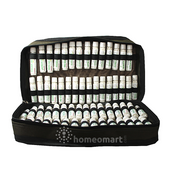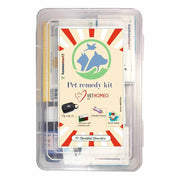Thea Chinensis Homeopathy Mother Tincture
Thea Chinensis Homeopathy Mother Tincture - SBL / 30ml is backordered and will ship as soon as it is back in stock.
Couldn't load pickup availability
Description
Description
About Thea Chinensis Homeopathy Mother Tincture Q
Also known as Camellia Chinensis, Camellia Sinensis, Camellia Thea, or Thea Sinensis, this remedy is derived from the tea plant and holds significant value in homeopathy—especially for treating sick headaches, nervous disturbances, and sleep disorders related to excessive tea consumption. It is especially beneficial for individuals suffering from palpitations, restlessness, and difficulty swallowing, commonly seen in habitual tea drinkers.
Common Name: Tea
Form: Mother Tincture (Q)
Key Indications
-
Nervousness and irritability
-
Sleeplessness with restlessness and mental overactivity
-
Sick headache that radiates from a single point
-
Heart-related symptoms such as fluttering, anxiety, and palpitations
-
Digestive complaints like bloating, gas, and a faint, sinking feeling in the stomach
-
Precordial oppression and inability to lie on the left side due to heart discomfort
-
Ovarian soreness and abdominal bloating with borborygmi
Therapeutic Benefits (as per Homoeopathic Materia Medica)
-
Head: Feeling of fullness or congestion in the head that spreads from a single point; mental excitement followed by gloom; hallucinations of hearing; sensation of cold dampness at the back of the head.
-
Stomach: Epigastric sinking and faintness; craving for acidic foods; sudden bloating due to excessive gas formation.
-
Abdomen: Audible rumbling (borborygmi); prone to hernia.
-
Female: Tenderness and soreness in the ovaries.
-
Heart: Irregular, rapid pulse; fluttering sensations; chest oppression; aversion to lying on the left side.
-
Sleep: Drowsy during the day but restless at night; sleeplessness with dry skin and vascular excitement; peculiar dreams that are disturbing but not horrifying.
Modalities (Conditions that Aggravate or Relieve Symptoms)
-
Worse: At night, in open air, after meals
-
Better: With warmth and warm baths
Relationship with Other Remedies
-
Antidotes: Kali Hypophosphoricum, Thuja, Ferrum, Kali Hydriodicum — especially useful in cases of "tea-taster’s cough" or overconsumption-related toxicity.
Dosage Guidelines
-
General dosage: 3–5 drops in water, 2–3 times a day
-
Potency: Third to thirtieth potency
-
Note: Dosage varies depending on age, severity, and individual sensitivity. In chronic cases, lower frequency may be advised (e.g., once a week or month). Always follow your physician’s instructions for proper administration.

